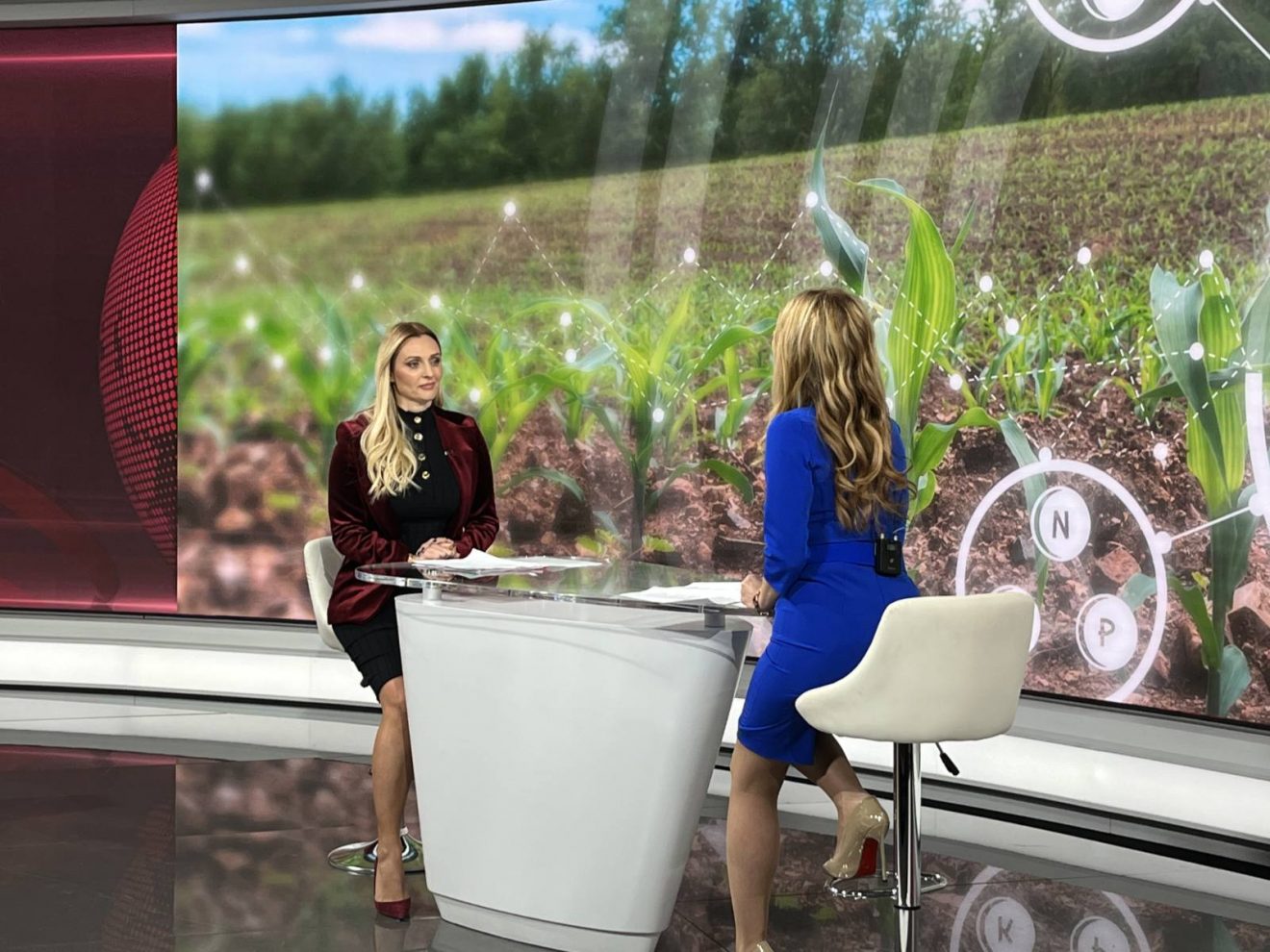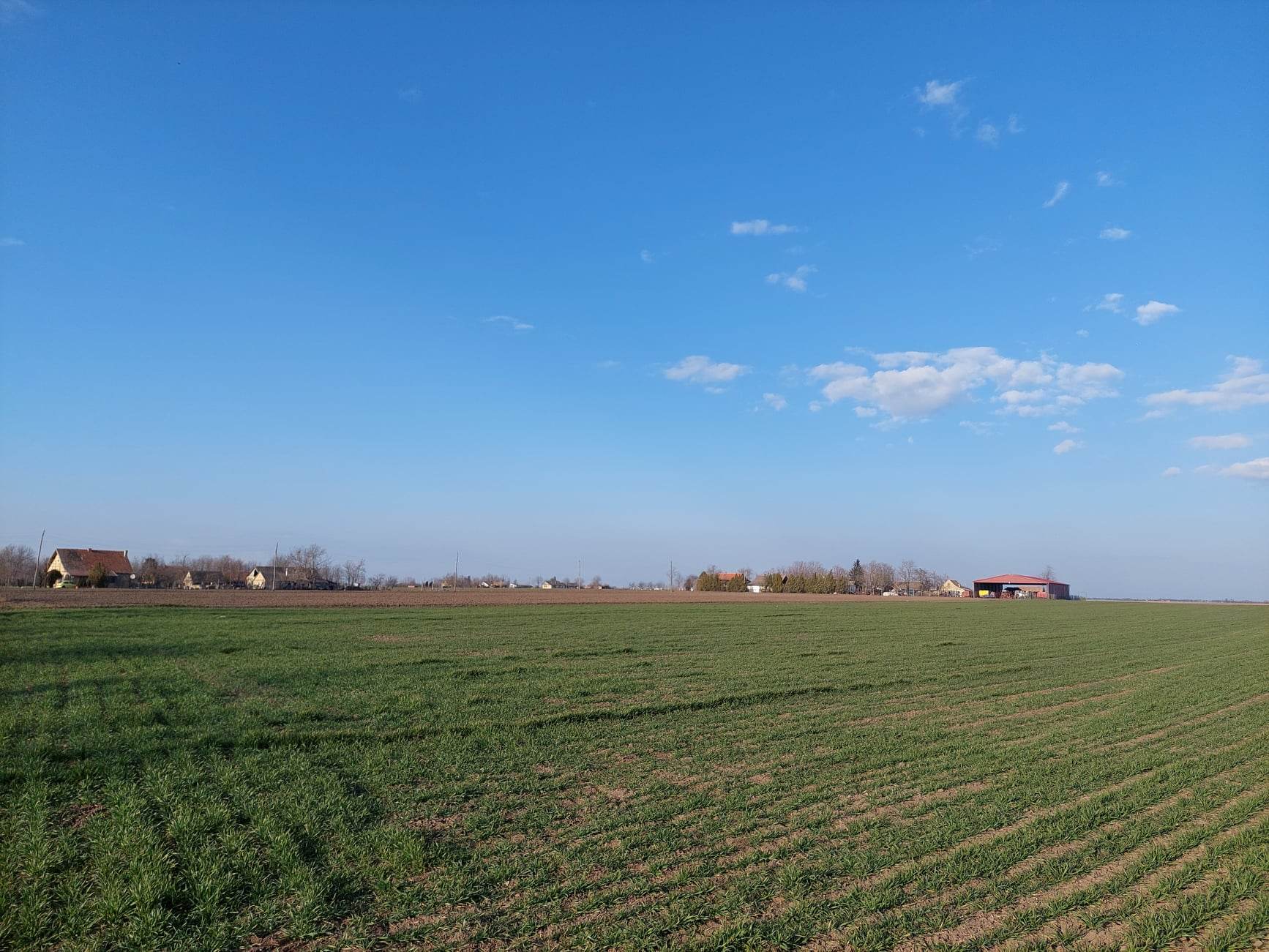Farmers appeal for state subsidy as wheat surplus reaches one million tonnes in storage
Serbian farmers are struggling to make use of the remaining bread grain from last year. The country has temporarily banned wheat exports in the wake of the food crisis caused by the Russia-Ukraine war. The caution was apparently overdone, some experts say, pointing out that around a million tonnes of bread grain remained in silos.
China may be the key to a solution
Farmers who cannot deal with the wheat left over from last year now demand help from the minister. In response to a request from the Stig Farmers’ Association, Jelena Tanaskovic said that negotiations are underway with China’s ambassador to Belgrade on the sale of one million tonnes of wheat to the Far Eastern country.

Photo: Serbia’s Ministry of Agriculture
As the terms of the deal have yet to be clarified, the minister has asked for farmers’ patience. She promised that the situation will be resolved by 4 April. Nedeljko Savic, representing the farmers’ association, announced the postponement of the demonstration, which was to be staged as a criticism of the country’s agricultural policy. Protesters planned to close the Morava Bridge in Pozarevac.
Exports were banned, so stocks piled up
The food crisis caused by the war between Russia and Ukraine prompted the Serbian government to temporarily ban wheat exports last March. Ukrainian grain disappeared from the world market overnight, creating a significant gap. Serbia decided not to sell its own stocks because of the looming shortage. After two months of a total export ban, the government eased the restriction, allowing exports of 220,000 tonnes per month.
Eventually, the global market stabilised and the deficit was resolved, causing the price of bread and cereals to plummet. While last spring, Serbian farmers could have received up to 40 dinars (34 euro cents) per kilogram of wheat, in recent months this has fallen to 23 dinars (20 euro cents).
In addition, demand has also fallen sharply, so even though Serbia has a significant amount of wheat left in stock, there is no one to buy it.
In three months, new wheat will be harvested
The previous harvest left in the silos is a huge problem for farmers, because in a few months the fresh wheat will come in and they will have nowhere to put it, Nedeljko Savic pointed out. Another problem is that farmers cannot produce profitably. The price of current assets has risen dramatically, especially that of fertiliser, without which they cannot produce a proper harvest.

The members of the Stig association are therefore asking the government for an increase in area-based subsidy. The farmers would also like half of the subsidy to be calculated on the basis of the size of the area and the other half on the quantity of the crop. They recall that the amount of state subsidy calculated on the basis of agricultural land was 14,000 dinars (120 euros) per hectare in 2010, but now it is a mere 6,000 dinars (50 euros). Farmers also receive 25 euros in fuel subsidy.
„Serbian agriculture has no chance to survive with such high costs of raw materials, fertilisers and depreciation while product prices are plummeting and European competition receives huge subsidies,” Mr Savic said.
A Serbian farmer interviewed by V4NA also confirmed that the current state support is not enough. With rising prices and inflation, it is becoming increasingly difficult for them to produce profitably and make enough to support themselves and their families. The subsidy does not increase, but everything in the shops will become more expensive, the farmer said.
Regarding the demand for an increase in subsidies, Serbian agriculture minister asked farmers to register their land in the e-Agrar electronic registration system. The data entered will help the ministry to calculate the cost of meeting the farmers’ request.
Much of Ukraine’s grain does not even reach Africa
It is not only non-EU member Serbia that has been affected by the cereal crisis, but also the European Union. The fact that there are currently 1.3 million tonnes of Ukrainian wheat in Hungary is also a major problem as the cheap Ukrainian wheat kills the demand for Hungarian grain, the chairman of the National Association of Cereal Growers warned. The establishment of solidarity corridors initiated by the EU was a good idea at first to deliver grain shipments stalled because of the Russia-Ukraine war, but the initiative did not yield results as Ukrainian grain shipments have been accumulating in several European countries, including Hungary, Tamas Petohazi pointed out.
In the last 120 days, only 12 per cent of the grain from Ukraine has reached Africa, while 40 per cent has gone to Western European countries, which has caused tension in the market, the expert said. As Ukrainian grain is stuck in the EU, the demand for Hungarian grain, which cannot compete with Ukrainian grain in terms of price, is plummeting.
The problem is caused by the European Union’s poor decision-making mechanism, the association said, voicing the opinion that the EU should solve the problem by transferring the accumulated Ukrainian stocks at EU cost to markets where they do not cause market disruption and do not destroy producers.
Meanwhile, the European Union has excluded Hungary from the EU compensation regarding Ukraine’s grain dumping. PM Orban’s office chief told a government press briefing on Thursday that six countries had expressed such a demand, and in the end, three countries were granted the money. Gergely Gulyas underlined that an erroneous decision was made and countermeasures are needed.
Brussels is once again applying a double standard, pursuing a discriminatory policy and is deliberately putting Hungarian farmers at a disadvantage,
Hungarian Agriculture Minister Istvan Nagy declared. The minister explained at the press conference following the meeting of the EU’s agriculture ministries that the solidarity corridors initiated by the EU, which were meant to facilitate the delivery of grain stuck in Ukraine to Africa and the Middle East, did not work as intended. Therefore, the member states bordering Ukraine were flooded with Ukrainian grain, causing a very serious internal market disturbance. As he said, six EU member states – Hungary, Poland, Romania, the Czech Republic, Slovakia and Bulgaria – requested extraordinary support from the European Commission to remedy the situation, but only Poland, Romania and Bulgaria will receive this financial assistance of more than 53 million euros. In his opinion, the Commission’s decision is seriously discriminatory and based on a professional mistake.
„The Commission claims that the grain coming from Ukraine does not have a knock-on effect on grain market prices, however, while the stock exchange price in Rotterdam hovers around 300 euros/tonne, it has fallen to 217 euros in Hungary. We cannot allow this to go unsaid, nor can we not point out the serious professional miscalculation that it’s not the arrival of Ukrainian grain that’s cause this large price drop,”
Mr Nagy said.
The Central European countries have agreed to take joint action under the coordination of Polish Prime Minister Mateusz Morawiecki to protect farmers from the harmful effects of Ukrainian grain dumping, Hungarian Prime Minister Viktor Orban announced on his social media following the EU summit on Friday.
Grain from Ukraine is of inferior quality
Brussels’ wrong decisions have dumped huge amounts of poor-quality Ukrainian grain of dubious origin on neighbouring countries, which also makes life impossible for Hungarian farmers. While EU farmers have to produce according to strict regulations – with significant additional costs – the quality of imports is highly questionable and may even be damaging to health. The Association of Hungarian Farmers’ Associations and Farmers’ Cooperatives (MAGOSZ) and the National Chamber of Agricultural Industries (NAK) have already drawn attention to this. They wrote:
It is outrageous that while in the EU – with the introduction of the Green Deal – food must be produced in compliance with exceptionally strict standards, there are no expectations for imports. Ukrainian grain often does not comply with EU regulations and also poses a health risk, as many pesticides and other substances are used in Ukraine that have been banned in the EU for decades, not to mention the fact that the cultivation of genetically modified plants is also permitted in Ukraine.
Ukrainian grain has also triggered some serious disturbances on the Polish market. Topagrar.pl has devoted many articles to how Polish farmers have staged numerous tractor protests, because they believe that the uncontrolled influx of Ukrainian grain has completely upset the balance of the Polish market. They said they wanted to continue helping the Ukrainians, but blocking the Polish market is not helping starving Africans. Instead, it plays to the hands of speculators from wealthy countries.
The Polish government decided to intervene. Not long ago, agricultural ministers Henryk Kowalczyk of Poland and Mykola Solskyi of Ukraine held a personal meeting, during which they reached an agreement on the conditions for the transit of Ukrainian agricultural products through Poland this year, according to topagrar.pl. The Ukrainians accepted the Poles’ stipulation that Ukrainian products destined for third countries can enter the country both by rail and by road, without any checks, but on strictly sealed means of transport and with the exact and clear marking of the exiting Polish border station on the transport documents.
Warsaw’s stipulation is not against Ukrainian suppliers, it only serves to protect Polish fodder and food funds, given that Polish farmers have suffered heavy losses due to the lack of protection last year.
If a supplier fails to ensure that the transit goods are leaving Poland, he will be fined. Upon entry, Polish customs authorities will only check goods that are duly supported and declared by contracts and whose final destination is Poland.
So long as the EU is busy trying to reach a deal on the delivery of Ukrainian grain, Russia will deliver grain to countries in need for free, should the Black Sea food agreement be terminated, Russian President Vladimir Putin told the international parliamentary conference in Moscow entitled Russia-Africa in a Multipolar World.
In Mr Putin’s words, Moscow undertook to extend the agreement guided by the needs of African countries. Among the agreements reached in Istanbul are the transport of Ukrainian food via the Black Sea and the exemption of Russian agricultural products and fertilisers from sanctions.
„We insist on the package nature of the agreement – foremost for the benefit of African and other developing countries – bearing in mind that they need vast quantities of food,” the Russian president stressed.
He also said that Moscow expects its demands to be met in full, meaning that that grain and fertiliser should actually reach the African countries in need, and not wind up in „well-fed European countries”. The Russian leader also underlined that around 45 per cent of the grain exported from Ukraine had landed in Europe, and only three per cent arrived in Africa.
ECONOMY
WORLD
Tags:
agrar, china, grain, serbia, tanaskovic




